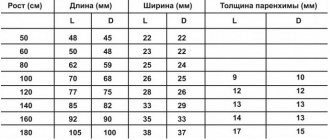A pediatric neurologist is a very important specialist who monitors the central and peripheral nervous system of a child, from birth to 18 years of age. What does a pediatric neurologist treat and what does a pediatric neurologist do? The primary task of this specialist is periodic observations of the stages of formation and development of the nervous system of a small patient, during which many progressive pathologies can be prevented. If it is impossible to prevent them and prevention does not help, an experienced pediatric neurologist determines the diagnosis and prescribes appropriate comprehensive treatment, which in most cases successfully cures the disease.
Today, there are many different diseases of the nervous system that differ from each other, which are classified according to a certain order. Let's list the main lesions of the nervous system and answer the question - what does a pediatric neurologist treat.
- Pathology associated with infection caused by exposure to harmful viruses and bacteria. A newborn child is most susceptible to such infectious diseases due to insufficiently developed immunity. That is why doctors do not recommend that parents visit crowded establishments with a small child.
- Epilepsy. It can be formed either as a result of injury or congenitally. Consultation and treatment with a neurologist are simply mandatory here.
- Diseases associated with severe bruises of the head area, traumatic injuries.
- Toxic pathology. Some drugs and medicines, namely their incorrect prescription and use, can provoke such damage to the nervous system.
- Genetic pathology. Passed on from parents or relatives due to appropriate heredity.
- Hypoxia, which in turn was observed in utero in the fetus.
A pediatric neurologist is very important for the formation of the normal functioning of the nervous system of a small child; he is able to carry out effective prevention of common pathologies.
What is the difference between a pediatric neurologist and a neurologist?
Very often, many parents ask a common question - is there a difference between a pediatric neurologist and a pediatric neurologist? In fact, these two definitions are absolutely identical, and their definitions are equivalent to each other. Why are both terms still used?
The fact is that the term pediatric neurologist is a rather outdated name for a specialist doctor, used in medicine until 1980, which has now taken on a different name - pediatric neurologist.
As for medical workers abroad, there is still a difference in terms:
A neurologist is a specialist who deals with diseases of the nervous system.
A neurologist is a specialist who carefully studies pathomorphology.
Does a healthy child need a neurologist? Interview with a pediatric neurologist, Ph.D. Novikova E.B.
Is it worth contacting a neurologist if everything is fine with the child? Let's ask a specialist - pediatric neurologist, doctor of the highest category, candidate of medical sciences Elena Borisovna Novikova .
Elena Borisovna is a doctor with 30 years of experience, all her life she has been involved in the treatment of diseases of the nervous system in children, as well as in scientific and teaching work (Associate Professor of the Department of Child Neurology at the Russian Medical Academy of Postgraduate Education). Her research interests include tics and neuroimmunology (she defended her dissertation on this topic). Has more than 50 publications in his specialty. The reception is conducted in Russian and English.
Elena Borisovna, when should you see a neurologist for the first time with your child? And for what?
Newborn children are born with an immature nervous system. Everyone knows that at first a baby cannot even hold his head up on his own or roll over onto his side. But the situation is changing right before our eyes - almost every day the baby learns something new, delighting his loved ones.
However, the maturation of the nervous system and the formation of new skills proceed according to the plan given by nature, each of them appears at a certain age. And if something doesn’t go quite “according to schedule,” only an experienced pediatric neurologist can assess whether it is dangerous and whether your baby is developing correctly. If necessary, he will give all recommendations for observation, treatment and prevention of diseases.
- The first visit to a neurologist is carried out at 1 month.
- In the first year of life, a preventive consultation with a pediatric neurologist is necessary every 3 months.
- From 1 to 3 years – visit a neurologist once every six months.
- Next, you should visit a pediatric neurologist annually as a preventive measure, as well as if you have any symptoms and questions to the doctor.
What does the doctor look for?
Many neurological abnormalities in children can occur unnoticed by others. But a neurologist will detect them by conducting a neurological examination of the child, based on deviations in reflexes, muscle tone and other symptoms of damage to the central and peripheral nervous system revealed during a medical examination.
The doctor will ask the mother about the course of pregnancy and childbirth, illnesses of close relatives, the well-being and prevailing mood of the baby, how he sleeps and eats. Assess the child's nervous excitability, hearing, vision, and touch. Will check the motor sphere, reflexes, muscle tone.
The word check up came to us from the English language, which can be literally translated as “check”. This is a standard examination of healthy children who do not have active complaints at certain age periods. If necessary, the doctor will prescribe further examination.
Nowadays there is so much information about the health and development of children - in books, the media, the Internet. It seems you can find the answer to any question there. What do you think of it?
In our age of rapid development of the Internet and universal awareness of everything about everything, the illusion is created that you can independently understand whether everything is okay with the child, take measures to accelerate development, prevent deviations in behavior and health.
However, it's not that simple. You should not look for answers to health questions on the Internet. Not everything that is written in books, said on TV, or told by other mothers on playgrounds is correct. And even correct information needs to be able to be correctly understood and applied.
Even such common and “obviously useful” (dubious thesis) procedures as massage, prescribed independently, without medical recommendations, can lead to unexpected results - increased excitability, sleep disturbances and behavior in the baby. And this is already a deviation from the norm. Moreover, pay attention, provoked by loving parents. Massage is a medical procedure, which has its own varieties, prescribed by a doctor if there are certain indications.
Consult your doctor before using any health-improving and developmental techniques and systems. After all, every child is unique, and what is useful for one at a certain age is not necessarily suitable for another.
What should alert parents and cause them to consult a neurologist?
If some symptoms appear, you should consult a specialist. This is not always evidence of some disease. But you should be careful about the baby’s health. Check yourself so that you don’t needlessly worry about trifles, but don’t miss something really important. Talk to your doctor if your child has:
In early childhood -
- restless sleep (difficulty falling asleep, frequent startling, waking up)
- crying for no reason
- convulsions
- chin tremor
- bulging fontanel in a baby
- frequent regurgitation
- throwing back the head in sleep
- delay in the formation of motor skills and psycho-emotional reactions (does not smile, does not distinguish between friends and others, is not interested in toys, etc.)
- walking on tiptoes, walking sideways, crawling to one side, limping, etc.
- lethargy or slowness of reactions
In older children (in addition to those listed) -
- your child complains of frequent headaches
- back and neck pain
- increased fatigue at school
- your child is struggling with schoolwork
- nervous tics and obsessive movements
- The child is hyperactive and has difficulty concentrating
- urinary and fecal incontinence
- increased anxiety and night terrors
- stuttering
- your child doesn't talk
- sleepwalking
Of course, you need to see a pediatric neurologist if:
- head injury occurred
- the child lost consciousness or had a seizure
Outpatient supervision by a neurologist is important if your child has been discharged from the hospital where he was hospitalized for a neurological disease
An early visit to a neurologist will help to correctly assess the child’s health status, take timely measures to harmonize his development, and prevent the transition of common minimal age-related deviations into neurological diseases. A little timely treatment will save your child from big problems.
to make an appointment with a doctor
What does a pediatric neurologist check and what are the specifics of his work?
Regardless of the type of appointment with a pediatric neurologist, primary or preventive, the doctor is obliged to carry out a strict examination procedure and give certain advice. What does a pediatric neurologist do and see in the office of a medical institution?
- Checks the stable functioning of the child’s visual reflexes;
- Checks muscle tone and strength level;
- identifies the presence of coordination of the baby’s movements;
- development of speech and memory.
- Determining the level of sensitivity.
After the neurologist examines the child and listens to complaints from the parents, the general picture of the child’s illness will become more or less clear to him. If necessary, the doctor may prescribe additional tests in the form of:
- Ultrasound of the brain and blood vessels. Dopplerography.
- MRI of the brain.
| Code | Name of service | Price |
| 6.1 | Appointment with neurologist G.M. Chernyaeva (examination, consultation, treatment prescription) | 2500 |
| 6.2 | Consultation with a neurologist Miroshnik E.E. (1-1.5 hours) | 5000 |
| 6.3 | Carrying out additional neurological examination (tests for dizziness, assessment of cognitive functions, study of the autonomic nervous system) | 600 |
| 6.4 | Treatment of paroxysmal positional benign vertigo (Epley maneuver) | 800 |
| 6.7 | Therapeutic drug blockade (excluding the cost of drugs) | 1900 |
| 6.8 | Therapeutic drug blockade (including the cost of drugs) | 2700 |
| 6.10 | Calling a neurologist to your home (Sviblovo) | 5000 |
| 6.11 | Calling a neurologist to your home (SVAO) | 6000 |
View all
Routine examinations of the child at 1 month
After patronage, when the baby reaches the age of 1 month, it is necessary to come for a medical examination of the baby to specialists. A healthy child needs to visit a pediatrician, neurologist, surgeon, orthopedist and ophthalmologist. If there are pathologies, a list of specialists is compiled individually.
What to bring to your appointment:
- documents (vaccination certificate, policy, SNILS);
- replacement diapers, 2 diapers, wet wipes;
- toys, spare pacifier;
- spare clothes;
- a notebook with questions for the doctor.
Pediatrician
During the first visit, the doctor will weigh the baby, measure height, conduct an examination and evaluate physical and neuropsychic development. The doctor will ask the mother about the child’s developmental characteristics and give recommendations for care. It is necessary to draw the doctor's attention to any shudders, twitchings and convulsions.
The doctor will measure the circumference of the head and chest, examine the fontanelles, and check the weight gain, which indicates proper development. The mother will be asked to talk about the baby’s skills. By one month, the child can hold objects in his field of vision, follows a toy, turning his head slightly, responds to a voice, briefly raises his head, and smiles. If the child is healthy, he is sent for a second vaccination against hepatitis B (the first is given in the maternity hospital).
Neurologist
To assess neuropsychic and mental development, you must visit a neurologist at the clinic. The doctor checks for the presence of innate reflexes and evaluates muscle tone. If there is increased or decreased tone, a massage is prescribed. The doctor examines the results of an ultrasound scan of the brain and evaluates the baby’s skills and abilities.
Surgeon
The doctor evaluates reflex development, examines the navel, diagnoses or excludes inguinal and umbilical hernias, and checks for the presence of hypo- and hypertonicity of the muscles. In boys, the external genitalia are examined to exclude various pathologies: dropsy, hypospadias, cryptorchidism. The doctor may detect lymphangioma, hemangioma, and vascular lesions. If necessary, a therapeutic massage is prescribed and recommendations are given on which muscles to pay attention to.
Orthopedist
The specialist evaluates the development of bones and muscles. Upon examination, a doctor can diagnose congenital dislocation of the hip joint, clubfoot, and joint dysplasia. The orthopedist, examining the child, actively flexes and extends the limbs and performs many manipulations to determine the condition of the musculoskeletal system.
To eliminate risks, a routine ultrasound of the hip joint is performed, the results of which are reviewed by the doctor at the appointment and determines the exact picture of the baby’s condition. Most pathologies are successfully treated up to 1 year, until the child begins to walk.
When should you show your child to a neurologist?
At the birth of a child, a visit to the office of a pediatric neurologist for preventive purposes is simply mandatory. Records are kept in the children's medical history card. Reception is held:
- When the baby is one month old.
- Next at 3 months.
- After six months.
- After one year of age.
- at 4-5 years old (preschool period)
- at 7 years old (before school);
- at 13-14. (adolescence period of growing up)
In addition, if there is even the slightest complaint or suspicion of a disorder in the nervous system of your little child, it is urgently recommended to consult a doctor, namely:
- sleep disturbance, sudden awakenings during night and daytime sleep with characteristic crying and hysterics. Restless short sleep, capriciousness of actions, increased excitability.
- Trembling of the chin and limbs when crying.
- Regurgitation when feeding, sudden vomiting when capricious.
- Lethargy, fatigue, lack of interest in outdoor games and food.
- Periodic convulsions.
- Throwing the head back during sleep.
- Headache.
- State of fainting.
- Muscle twitching uncontrollable by the baby.
- Deviations in development - the child does not walk, does not sit independently, does not crawl, does not hold his head, does not look to the sides.
- Speech defects, delayed development of speech or its absence.
If these symptoms are detected, you must take your child to the children's neurological department!
From this video you will learn what the consequences of not visiting a neurologist may be:
When to visit a pediatric neurologist
So, an appointment with a pediatric neurologist is necessary for absolutely all children, especially in the first year of life. During this period, the baby’s innate reflexes evolve, as well as the acquisition of important skills. But the pace of development in the first year of life is uneven. In addition, each baby is unique, so you need to sound the alarm only if skills appear with a delay of one and a half months relative to the deadline, which is considered the norm for neuropsychic maturation.
In order to understand the individual characteristics of a child’s development and, as early as possible, neutralize neurological problems that can disrupt or slow it down, a consultation with a pediatric neurologist for newborns is carried out every 3 months. In general, the period of rapid development of the human nervous system occurs during the first 4 years.
It is not uncommon for a pediatric neurologist to “exaggerate”, relying more on statistics than on the individual characteristics of the child’s maturation. By the way, even experienced doctors resort to overdiagnosis to play it safe. But it happens that parents themselves trust the prevailing stereotypes that a good pediatric neurologist should at all costs confirm the mother’s fears.
Neurological disorders are not:
- vagaries due to weather;
- pulsation of the fontanel when screaming;
- trembling of the arms and chin when crying up to 4-5 months;
- regurgitation after feedings;
- a white stripe around the iris;
- "hyperactivity" in children under 6 years of age.
There is no need to panic until your fears have been confirmed by a pediatric neurologist. Just watch your child and make an appointment with a doctor if any conditions begin to appear more often than usual or for no apparent reason.
Choosing a doctor
| This is important to know! Many parents tend to underestimate or overestimate certain reactions of their children. Make an appointment with a pediatric neurologist even if it seems to you that everything is fine with your child. Remember, only a specialist can determine the line between normal and disease. |
The accuracy of the diagnosis, the effectiveness and safety of medicinal and preventive prescriptions depend on the pediatric neurologist. We recommend that you learn as much as possible about the doctor’s experience and look at reviews of the pediatric neurologist.
What is mmd in neurology in children
MMD is a minimal brain dysfunction caused by acute failure of the central nervous system, disturbances in the child’s mental state, as well as a number of other dangerous symptoms.
How does mmd manifest itself in neurology in children?
- Overly active behavior, namely constant movements of both arms and legs, lack of perseverance.
- Quick distraction to the presence of any irritants.
- Inability to play alone.
- He talks incessantly, interrupts adults, and does not hear others when they ask him questions.
- Moves from one task to another without completing the first.
- Losing things in kindergarten, school, absent-mindedness.
What is neurology in children?
Neurology in children is a complex, multifaceted medical discipline that deals with diseases of the nervous system of a small patient. If a qualified doctor still detects neurology in a child, this can be explained by the following most common reasons:
- Receiving a birth mechanical injury;
- fetal hypoxia, as well as insufficient oxygen supply due to possible repeated entanglement in utero;
- complex process of childbirth and labor;
- acute toxicosis of pregnant women throughout the entire period;
- genetic inheritance.
What is neurology in eight-year-old children?
The child’s psyche is like plasticine; it is very susceptible to stress and any circumstances; parents, in turn, are advised to ensure that it is not damaged. In what cases does neurology occur in school-age children, namely 8 years old?
- Excessively heavy loads on the child’s body.
- A feeling of constant fear caused by the behavior of parents, as well as their pressure.
- Adaptation period at school.
Such neurosis is accompanied by anxiety, sometimes stuttering, tics, and fainting. At the slightest manifestation of these symptoms, you should immediately consult a doctor.











